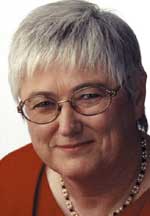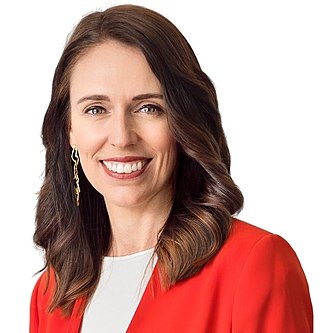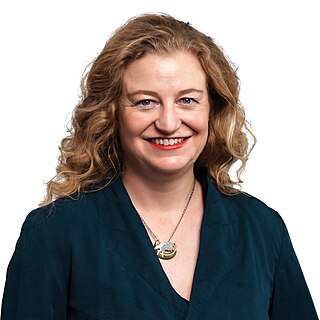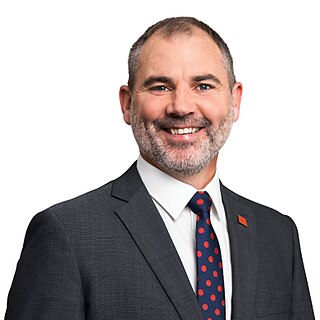
Aotearoa Legalise Cannabis Party (ALCP), also known as the Cannabis Party, is a political party in New Zealand. It is dedicated to the legalisation of cannabis for medical, recreational and industrial use. It was founded in 1996 and has stood in every general election since, but has never won representation in Parliament. Several of its members have gone on to political success after leaving the party.

Marian Leslie Hobbs is a New Zealand politician who was a Labour Member of Parliament from 1996 to 2008. She was initially a list MP and then represented the Wellington Central electorate. She served as Minister for the Environment and, later, as one of two Assistant Speakers of the House of Representatives. She represented the Dunedin constituency of the Otago Regional Council from 2019 to 2021.

Lesley Frances Soper is a former New Zealand politician of the Labour Party.

Clutha-Southland was a parliamentary constituency returning one member to the New Zealand House of Representatives. The last MP for Clutha Southland was Hamish Walker of the National Party. He held the seat for one term, being elected at the 2017 general election and representing the electorate until the 2020 general election where he retired from Parliament, and the seat was replaced with the Southland electorate.

Michael Allan Woodhouse is a New Zealand healthcare chief executive and former politician. He was a Member of Parliament for the National Party from 2008 to 2023.

Heather Janet Logie is a New Zealand politician and a former member of the New Zealand House of Representatives. She is a member of the Green Party of Aotearoa New Zealand.

Sarah Maree Dowie is a New Zealand former politician of the National Party. She was the Member of Parliament for Invercargill from 2014 to 2020.

Matthew Maurice Doocey is a New Zealand politician who was elected to the New Zealand Parliament at the 2014 general election as a representative of the New Zealand National Party. He was re-elected in 2017 with a majority increase of over 10,000 which was a significant increase from a majority of 2,500 in 2014. It was reported that this was the largest personal vote increase in the country.

The 2020 New Zealand general election was held on Saturday 17 October 2020 to determine the composition of the 53rd New Zealand Parliament. Voters elected 120 members to the House of Representatives, 72 from single-member electorates and 48 from closed party lists. Two referendums, one on the personal use of cannabis and one on euthanasia, were also held on the same day. Official results of the election and referendums were released on 6 November.

Deborah Faye Russell is a New Zealand academic and politician. She is a Member of Parliament for the Labour Party and served as Minister of Statistics and Minister Responsible for the Earthquake Commission from February to November 2023.

Willow-Jean Prime is a New Zealand politician. She was first elected a Member of the New Zealand House of Representatives at the 2017 general election as a list representative of the New Zealand Labour Party. She was elected as the Member of Parliament for Northland at the 2020 general election and was re-elected as a list MP in 2023.

Anna Louise Lorck is a New Zealand politician of the Labour Party. She served in the New Zealand House of Representatives as the MP for Tukituki from 2020 to 2023.

Tracey Lee McLellan is a New Zealand politician. From 2020 to 2023, she was a Member of Parliament in the House of Representatives for the Labour Party. In 2024, she re-entered parliament after the resignation of fellow Labour List MP Rino Tirikatene.
This page lists candidates contesting electorates in the 2020 New Zealand general election.

Ingrid Marieke Leary is a New Zealand politician. In 2020 she was elected as a Member of Parliament in the House of Representatives for the Labour Party.

Rachel Jane Brooking is a New Zealand Labour Party politician and Member of Parliament who served as the Minister for Oceans and Fisheries and Minister for Food Safety in the Sixth Labour Government. She first became an MP at the 2020 New Zealand general election. She is a lawyer by profession.

Joseph Mooney is a New Zealand politician. In 2020 he was elected as a Member of Parliament in the House of Representatives for the National Party in the Southland electorate.

Penelope Elsie Simmonds is a New Zealand politician, Member of Parliament and a Minister in the House of Representatives for the National Party. She previously served as the chief executive of the Southern Institute of Technology. Following the 2023 New Zealand general election, Simmonds assumed the disability issues, environmental, tertiary education and skills, and associate social development and employment portfolios in the Sixth National Government.

Glen Thomas Bennett is a New Zealand politician and a member of the Labour Party. He was elected the Member of the Parliament for New Plymouth at the 2020 New Zealand general election, defeating the National candidate and incumbent Jonathan Young. He lost his seat to David MacLeod in the 2023 general election, but re-entered parliament on the list in March 2024 following the retirement of Grant Robertson. Prior to entering politics, Bennett worked in the community sector for more than 20 years.

Jessica Hammond is a New Zealand public servant, perennial candidate, playwright, and blogger. Hammond stood for The Opportunities Party for Ōhāriu in the 2017, 2020, and 2023 general elections, coming third twice and fourth once.



















